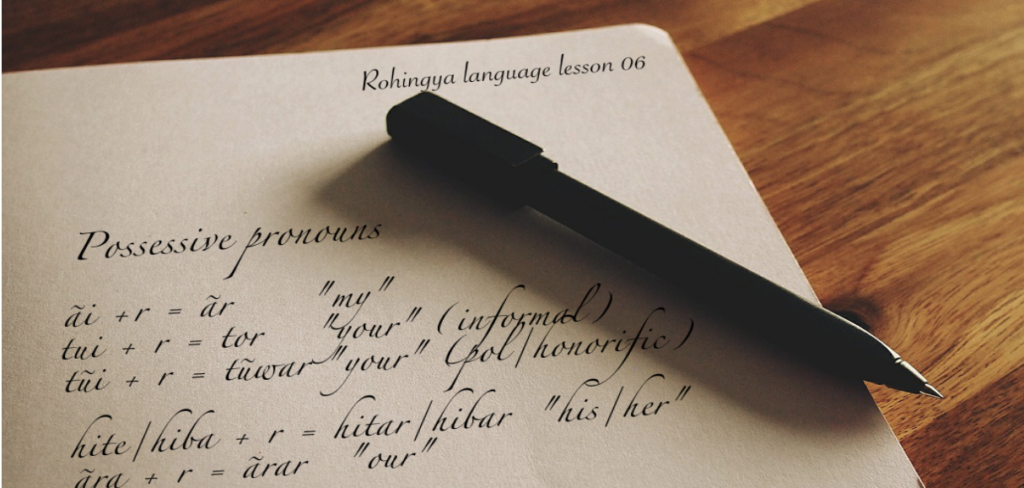
One of the ways to express possession in Rohingya is to use the genitive form of the personal pronouns before the noun. In English we use the possessive pronouns “my, your, his/her/its, our, their” to express possession.
New words
fúl /ˈful/ – “flower”
foni /ˈfɔnɪ/– “comb”
kitab /cʰɪˈtɑb/ – “book”
holom /həˈlɔm/ – “pen”
dabai /dʌˈbɑⁱ/ – “medicine”
ošut /əˈʃut/ – “medicine”
maštor /mʌʃˈtɔɾ/ – “teacher”
gula /ˈgulʌ/ – “fruit”
õṛi /ˈõɽɪ/ – “ring”
foni /ˈfɔnɪ/– “comb”
kitab /cʰɪˈtɑb/ – “book”
holom /həˈlɔm/ – “pen”
dabai /dʌˈbɑⁱ/ – “medicine”
ošut /əˈʃut/ – “medicine”
maštor /mʌʃˈtɔɾ/ – “teacher”
gula /ˈgulʌ/ – “fruit”
õṛi /ˈõɽɪ/ – “ring”
| ãr fúl | "my flower" |
| tũwar foni | "your comb " |
| hitar kitab | "his book" |
| hibar õṛi | "her ring" |
| ãrar holom | "our pen" |
| tũwarar ošut / dabai | "your (pl) medicine" |
| hitarar gór | "their house" |
Most nouns in Rohingya can also be inflected for genitive case, which is the suffix –r, to express the idea of possession. Let us look at some examples:
| fuwar gula | "child's fruit" |
| maštoror holom | "teacher's pen" |
| babor kitab | "father's book" |
